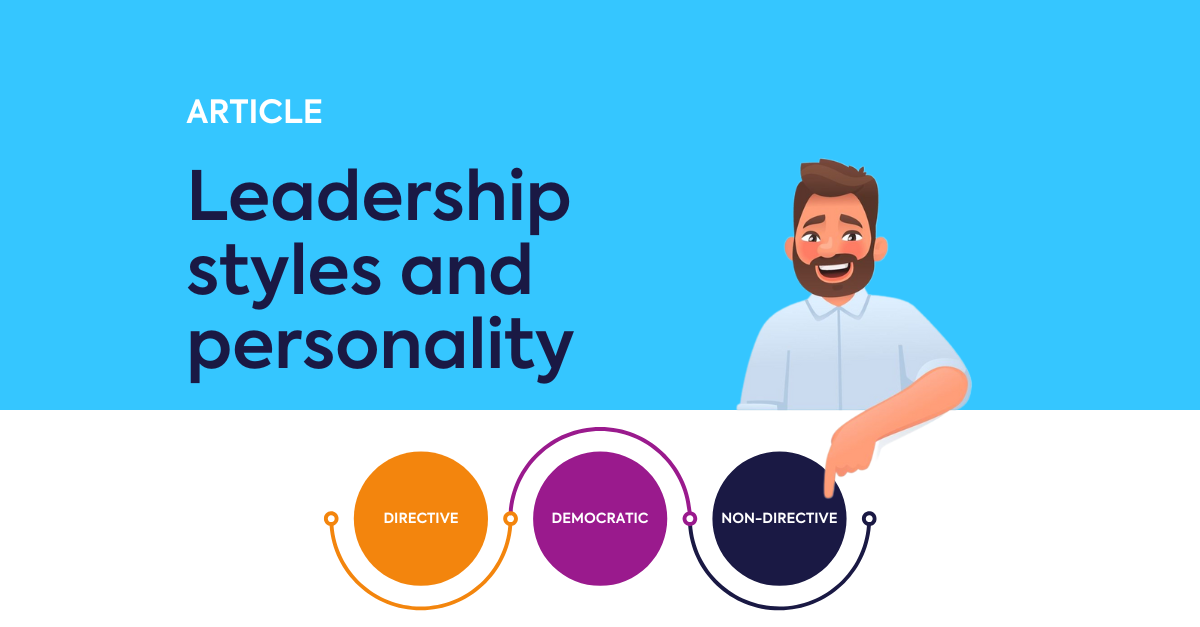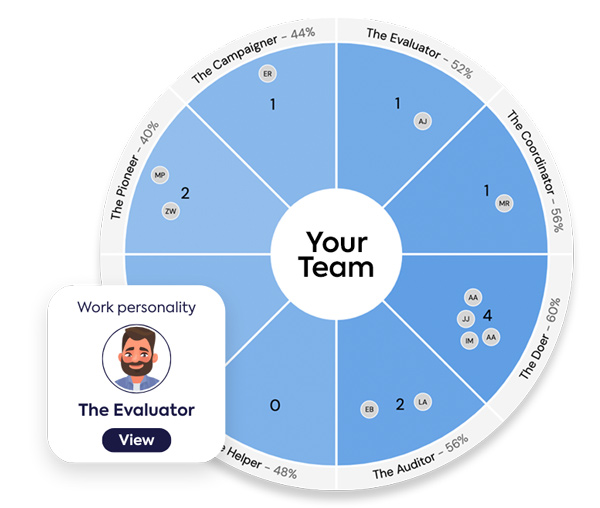Leadership Styles and Your Personality
The impact of a leader is undeniable, yet we rarely pause to consider why we exhibit certain leadership styles and are naturally drawn to specific...
Become the expert on delivering
valid and fair assessments for
your training and education.
Hire
|
Engage
|
Develop
|
|
Automatically match to candidates who are a great fit for your team culture and who are intrinsically motivated to succeed. |
Deeply understand your organisation with science-backed analytics on your culture, team design, and engagement. |
Back your onboarding, compliance and skill development with industry-leading credentialling, competency and capability expertise.
|
Hey Compono helps you understand your personality and how to turn it into your superpower.
First 1,000 users get 10 minutes free.
Just $15 a month after that — cancel anytime.
2 min read
 Rudy Crous
June 12, 2025
Rudy Crous
June 12, 2025
-1.png)
June 2025 | Insight from Compono’s Work Personality Research
What kind of personality makes a great leader? Do strategic thinkers rise to the top? Are people-driven types better suited to influence others? And what happens when visionaries are stuck in entry-level roles?
To explore these questions, we analysed over 220 responses from professionals across various industries using our Work Personality framework. Each respondent was categorised by one of eight personality types (e.g., Pioneer, Campaigner, Evaluator), and we mapped these against their current job level, from Intern to Executive Leadership.

The patterns tell a powerful story about how personality shapes career progression—and how organisations can use this insight to design roles, coach talent more effectively, and build effective teams.
The most common personality across all levels? The Pioneer. Known for strategic thinking, innovation, and a future-focused mindset, Pioneers showed up consistently, not just in the boardroom, but also among interns and junior employees.
This is both encouraging and concerning.
It suggests organisations are attracting ambitious change-oriented individuals even at the start of their careers. But it also raises a red flag: Are these strategic minds being challenged and supported? Pioneers need autonomy, vision, and meaningful problems to solve. Without that, they disengage or leave.
If you’re hiring entry-level talent, and you see strong Pioneer traits, it may be time to rethink what “junior” really means.
Second in prominence were Campaigners — energetic, persuasive, emotionally intelligent. Notably, they dominate Executive Leadership roles. Their ability to connect, inspire, and lead cultural or commercial change makes them particularly well-suited to senior positions where people and momentum matter.
This aligns with a broader trend: leadership today demands more than operational excellence. It requires empathy, storytelling, and influence - qualities Campaigners bring in abundance.
In middle management, we saw a blend of Evaluators, Advisors, Helpers, and Doers. These are roles that often require balancing risk, execution, and collaboration, making it the perfect zone for personalities with analytical, reliable, or service-oriented strengths.
These individuals are the glue that holds organisations together and are often under-recognised, but essential for delivering outcomes at scale.
Visionaries at the bottom.
The high number of Pioneers at junior levels was unexpected. If you’re not tracking this, you risk talent loss or underperformance due to misalignment between personality and role design.
Helpers and Doers are underrepresented at the top.
While critical for execution, these practical personalities are rare in senior leadership. This may reflect an organisational bias toward strategic or charismatic traits, but it also highlights a development opportunity. Great leadership isn't just about vision, it's about getting things done.
Map personality to role design.
A Doer thrives on execution. A Campaigner thrives on connection. A Pioneer thrives on possibility. Role fit matters - not just for engagement, but for performance.
Don’t let strategy stagnate.
If your Pioneers and Campaigners are stuck in reactive, low-autonomy roles, you're sitting on untapped potential. Coach them up or give them space to lead.
Rebalance your leadership bench.
Vision without execution is a dead end. Check whether your senior team has enough Doers, Evaluators, and Helpers to land the strategy.
Personality isn’t destiny, but it is a strong signal.
When you understand the natural patterns in how people think, act, and lead, you can align talent to tasks more effectively, build stronger teams, and shape a healthier culture.
As our data shows, leadership potential isn’t always where you expect it — but it’s always worth unlocking.

Discover how Compono can help you evaluate your teams and understand how their personalities can predict how they work together. Talk to one of our experts today!

The impact of a leader is undeniable, yet we rarely pause to consider why we exhibit certain leadership styles and are naturally drawn to specific...

Ever feel like traditional hiring processes fall short in selecting the right fit for your team? Well, you’re not alone. The challenges of...

Ever looked at those dream teams that just seem to click, where everyone’s strengths complement each other perfectly, and wondered how they got it...